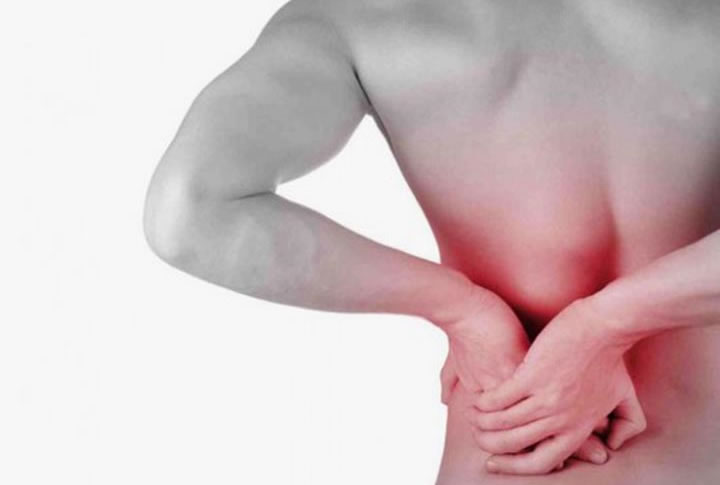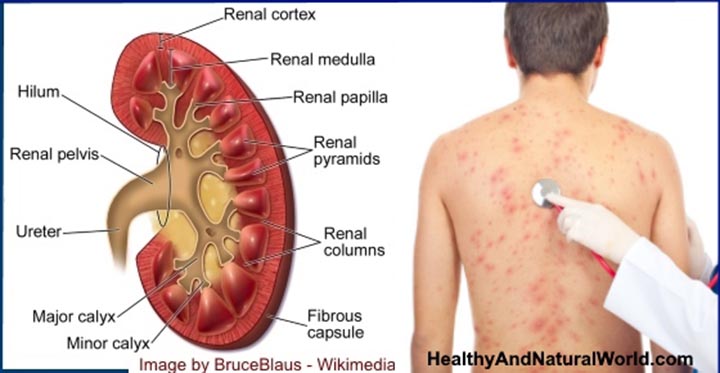Before we begin, it’s important to distinguish chronic kidney failure from acute kidney failure – even though the two tend to get mixed up quite often. In general, acute kidney failure develops at a rather rapid pace. Whereas chronic kidney disease takes place and develops at a very slow rate, generally a time period of months or even years in certain cases. Chronic kidney disease has some indicative symptoms, but many of these stay hidden for quite a long time as well. In fact, your kidneys can begin failing without you even noticing; that’s how subtle chronic kidney disease can be! So, what are some ways that you can be on the lookout for chronic kidney disease to make sure you can thwart it before things become substantially worse?

Source: doctoroz.com
Here Are 6 telling Signs and Symptoms of Kidney Failure:
- Increased levels of fatigue
One of the most common and telling signs of kidney failure is one that many overlook. Anemia occurs when there are low levels of red blood cells in the body, which ultimately causes fatigue. When your kidney is damaged, the production of EPO is drastically lower. For those of you who aren’t biology nerds, EPO is a very crucial hormone in maintaining a healthy production of your body’s red blood cells. So, when your kidney gets damaged, those EPO levels drop, and your body sees a drastic cut down in the number of red blood cells that are produced. When this takes place, less oxygen is able to go throughout your body, so you experience fatigue. Although it is easy to miss this sign of kidney failure, it’s important to address this issue immediately.
- Different urination patterns
Your kidneys are responsible for eliminating waste in your body in the form of urine, so this kidney failure symptom is one of the easiest ones to spot. Things to look for are any changes you notice in your urine’s color, frequency, and even quantity. While bloody urine is obvious, you should also keep an eye out for foamy or cloudy urine because they can be just as important regarding kidney failure and damage.
- Swelling throughout your body
While on the topic of kidney failure symptoms and waste, your urine isn’t the only factor that alters to a failing kidney. Another one of the many kidney failure symptoms is excessive swelling. When your body does not rid itself of waste at the rate it requires to, edema is common, especially in the feet and hands. Essentially, edema is a condition where fluid collects, swelling the areas affected.
- Changes on your skin
Another telling sign of chronic kidney disease has to do with your skin. Just as waste buildup causes swelling, CKD can also cause your skin to become rashy and itchy. Swelling and itchiness are equally irritating and uncomfortable, so it’s important to have these symptoms examined.
Source: healthyandnaturalworld.com
- An absent appetite
Waste buildup can have even more effects; it can actually impact your appetite. In fact, it’s common to experience a bad taste in your mouth that’s metal-like due to waste buildup. Combined with nausea and vomiting, is a loss of appetite really a surprise?
- Pain within your chest
Last but certainly not least, we need to talk about chest pains as one of many kidney failure symptoms. When your body experiences a buildup of an abnormal amount of excess fluids, especially around your lungs or heart, this can lead to shortened breath and striking chest pains.
Take Kidney Failure Seriously
Kidney failure is a serious issue that requires immediate attention with great caution. Although it isn’t one of the leading causes of death, it still troubles the lives of many, many Americans today. While doctors can treat kidney failure at its higher progression levels, the treatment is a lot easier with early detection.
Featured Image Source: lungscancerstages.blogspot.ca
Sourced from: healthliving.today

